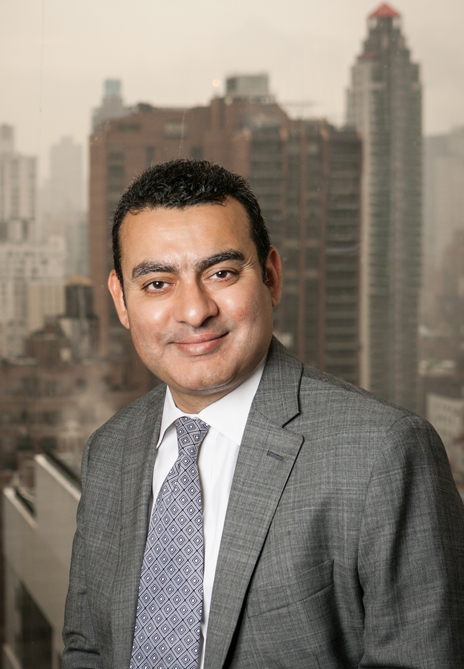
Irfan Hasan is The Trust’s newly promoted deputy vice president for grants; he continues to manage our health and behavioral health grantmaking.
“Many of us felt a collective sigh of relief when we saw the first COVID-19 vaccine in the U.S. administered to a critical-care nurse in Queens last December. It seemed like we had finally turned a corner. The unfortunate truth is that we still face several hurdles to getting past the pandemic, particularly the mass distribution of vaccines and overcoming concerns about being vaccinated.
We saw that The Trust could play a role in ensuring New Yorkers understand the value of inoculation and that scientifically sound messages are delivered to encourage vaccination.
The initial challenge was getting enough supply to meet the pent-up demand. Now, conversations are taking a different tilt as manufacturers deliver hundreds of millions of doses. The country—and New York—will still need to vaccinate those who didn’t eagerly seek out the shots, could not get to vaccination sites, or remain hesitant.
There are a variety of concerns people have about the new vaccines, so we want to make sure that nonprofits can quickly respond to misinformation with science-based messaging. We also want to make sure that trusted messengers in the community can help people make decisions based on facts.
Many experts believe that even if vaccine availability is plentiful—and all those who want to get a shot receive it—the United States will still fall short of achieving herd immunity by the end of this year. Vaccinating New Yorkers must be a priority for months to come. But history shows us some groups—especially low-income New Yorkers and people of color—have often been at the tail end of receiving the latest developments in healthcare.
In response, The Trust has made $1 million in grants to six nonprofits to help us make progress locally. The New York Academy of Medicine will organize community and medical groups. CUNY Graduate School of Public Health and Policy will develop a data dashboard to track hesitancy and help shape messaging. Public Good Projects will monitor social media and counter misinformation in real time. The Fund for Public Health in New York will coordinate outreach efforts in several high-need neighborhoods. Community Health Care Association of New York State will work with its network of clinics to improve access to vaccinations, and will talk with clients face-to-face if they have hesitancy about the inoculation. Finally, VOCAL-NY will target a vaccine campaign for high-risk populations, including people with HIV or AIDS, and former drug users. Multi-directional communication is critical, so the grants require that groups convene regularly.
The issue is bigger than what a single foundation can do. We are joined by the New York State Health Foundation and the Altman Foundation, which have aligned their grants to bring additional resources to some of these projects. As the region’s community foundation, we often use this cooperative approach.”
Vaccine hesitancy is real—even in a place that was as hard-hit as New York. For example, a recent survey of Brooklyn residents noted almost 60 percent of respondents remained unsure about getting vaccinated, citing side effects as the primary concern. Science-based messaging to overcome this hesitancy is critical. — Irfan Hasan